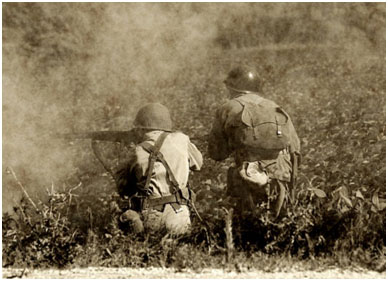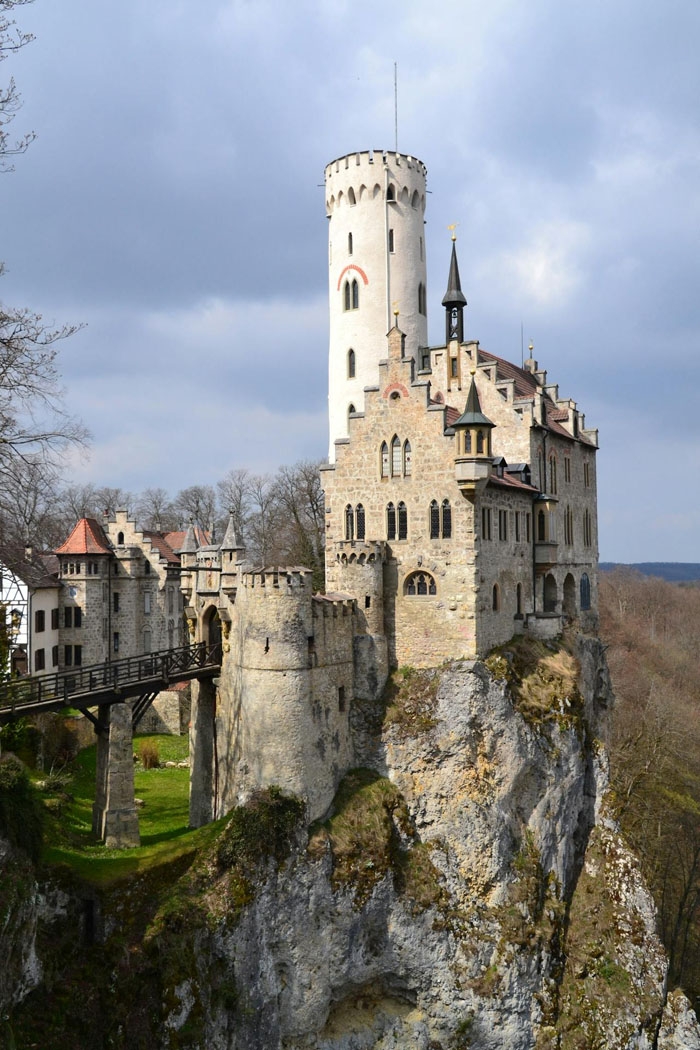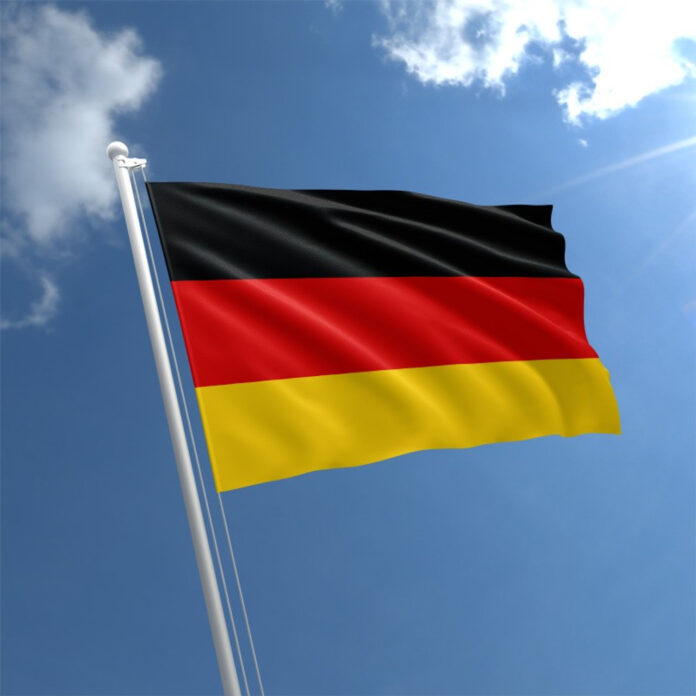The history of Germany can be traced back to ancient times when various Germanic tribes inhabited the region. The Romans exerted a significant influence on the area, establishing provinces such as Germania Magna. However, the fall of the Roman Empire in the 5th century AD marked the beginning of the medieval period in Germany.
During the early medieval period, the region was divided into numerous small states and territories, each ruled by local lords and princes. The concept of a unified German state was virtually non-existent. In the 9th century, the Carolingian Empire, under Charlemagne, briefly brought a semblance of unity to the region. After Charlemagne’s death, the empire fragmented into smaller states.

The Holy Roman Empire, established in 962 AD, was a loose confederation of states under the nominal rule of the Holy Roman Emperor. The empire lasted for over a thousand years, although its internal divisions and constant conflicts hindered the development of a strong central authority. The Holy Roman Empire played a significant role in shaping the political and cultural landscape of medieval Germany.
In the 16th century, Martin Luther, a German monk, initiated the Protestant Reformation, challenging the authority of the Catholic Church. Luther’s ideas led to the establishment of Protestantism as a significant religious and political force in Germany. The religious tensions between Catholics and Protestants culminated in the devastating Thirty Years’ War (1618-1648), which resulted in widespread destruction and loss of life.

The 18th century saw the rise of the Enlightenment in Germany, fostering intellectual and cultural advancements. However, the Napoleonic Wars in the early 19th century profoundly impacted the region. Napoleon Bonaparte’s forces occupied much of German territory, leading to a sense of national consciousness among the German states.
German Unification and Empire
In 1871, the diverse German states, under the leadership of Prussia and its Chancellor Otto von Bismarck, united to form the German Empire, with Kaiser Wilhelm I as its head. This momentous event marked a significant turning point in German history, creating a powerful and industrialized nation-state in the heart of Europe. The German Empire emerged as a leading economic and military power, but its ambitions and policies also contributed to tensions in Europe.

World Wars and Interwar Period
The 20th century presented unprecedented challenges to Germany. World War I (1914-1918) resulted in the defeat of the German Empire and the abdication of Kaiser Wilhelm II. The Treaty of Versailles imposed severe conditions on Germany, leading to economic hardships and political instability during the Weimar Republic era.
Adolf Hitler and the Nazi Party ascended to power in 1933, implementing aggressive expansionist policies that ultimately led to World War II (1939-1945). Germany’s involvement in the Holocaust and other war crimes during this period remains one of the darkest chapters in human history.
Division and Reunification
Following the defeat of Nazi Germany in 1945, the country was partitioned into four occupation zones controlled by the Allies: the United States, the Soviet Union, the United Kingdom, and France. The ideological differences between the Western Allies and the Soviet Union escalated into the Cold War, resulting in the division of Germany into East and West Germany. The construction of the Berlin Wall in 1961 became a symbol of this division.
The tensions of the Cold War were alleviated during the latter part of the 1980s, resulting in a sequence of events that ultimately culminated in the collapse of the Berlin Wall in 1989. This pivotal moment served as a catalyst for the reunification of East and West Germany on October 3, 1990.
Modern Germany
In the aftermath of reunification, Germany has emerged as a prominent global economic force and a significant participant within the European Union. It has wholeheartedly embraced democratic principles, positioning itself as a leader in technology, innovation, and environmental sustainability. The political landscape of Germany is characterized by a multiparty system, with the Christian Democratic Union (CDU) and the Social Democratic Party (SPD) being two of the major political entities.
Germany’s unwavering commitment to renewable energy, robust economy, and emphasis on education and research have firmly established its status as a world leader in various domains. The nation continues to play a central role in shaping the future of Europe and the international community.
Following the immense devastation caused by World War II, Germany was faced with the formidable task of rebuilding the nation. The implementation of the Marshall Plan, an initiative spearheaded by the United States aimed at aiding the reconstruction efforts of Western Europe, played a pivotal role in Germany’s economic recovery. This period of rapid economic expansion, commonly referred to as the “Wirtschaftswunder” or Economic Miracle, brought about a profound transformation of West Germany into a formidable industrial force. Pioneering industries such as automotive engineering and electronics became synonymous with the exceptional engineering prowess of Germany.
The Cold War and the situation in East Germany
In 1949, East Germany, officially known as the German Democratic Republic (GDR), was established under the influence of the Soviet Union. The division of Germany along ideological lines persisted throughout the duration of the Cold War. East Germany encountered significant economic challenges, resulting in a substantial exodus of its citizens to West Germany, particularly prior to the construction of the Berlin Wall. The symbolic collapse of the Berlin Wall in 1989 marked the symbolic end of this division, ultimately leading to the reunification of Germany in 1990.
European Leadership and the European Union
In the era following the end of the Cold War, Germany emerged as a prominent force driving the process of European integration. The nation assumed a pivotal role in the establishment of the European Union (EU) and the adoption of the euro, the shared currency utilized by 19 out of the 27 member states of the EU. Germany’s unwavering commitment to the EU project has played a crucial role in upholding stability within the region and fostering economic cooperation among European nations.
Challenges and Social Progress
Modern Germany has encountered a multitude of challenges, encompassing the management of the integration between East and West Germany, the mitigation of social and economic disparities, and the navigation of the intricacies associated with immigration and multiculturalism. The nation has made notable advancements in promoting tolerance, diversity, and LGBTQ+ rights, thereby transforming into a socially progressive country that places great importance on human rights and equality.
Global Influence and International Relations
Germany occupies a prominent position in the realm of international diplomacy, actively contributing to peacekeeping endeavors, humanitarian initiatives, and global environmental campaigns. It has consistently maintained a robust transatlantic relationship with the United States, while simultaneously forging stronger ties with emerging powers such as China. Germany’s influence in international affairs continues to expand, exerting a significant impact on discussions pertaining to critical issues such as climate change, trade, and global security.
Cultural Contributions and Heritage
Germany boasts a rich cultural heritage that has had a profound impact on global culture. Its contributions to literature, philosophy, music, and art are significant and enduring. The works of philosophers such as Immanuel Kant and Friedrich Nietzsche, as well as the compositions of renowned musicians like Ludwig van Beethoven and Johann Sebastian Bach, continue to inspire people worldwide.





